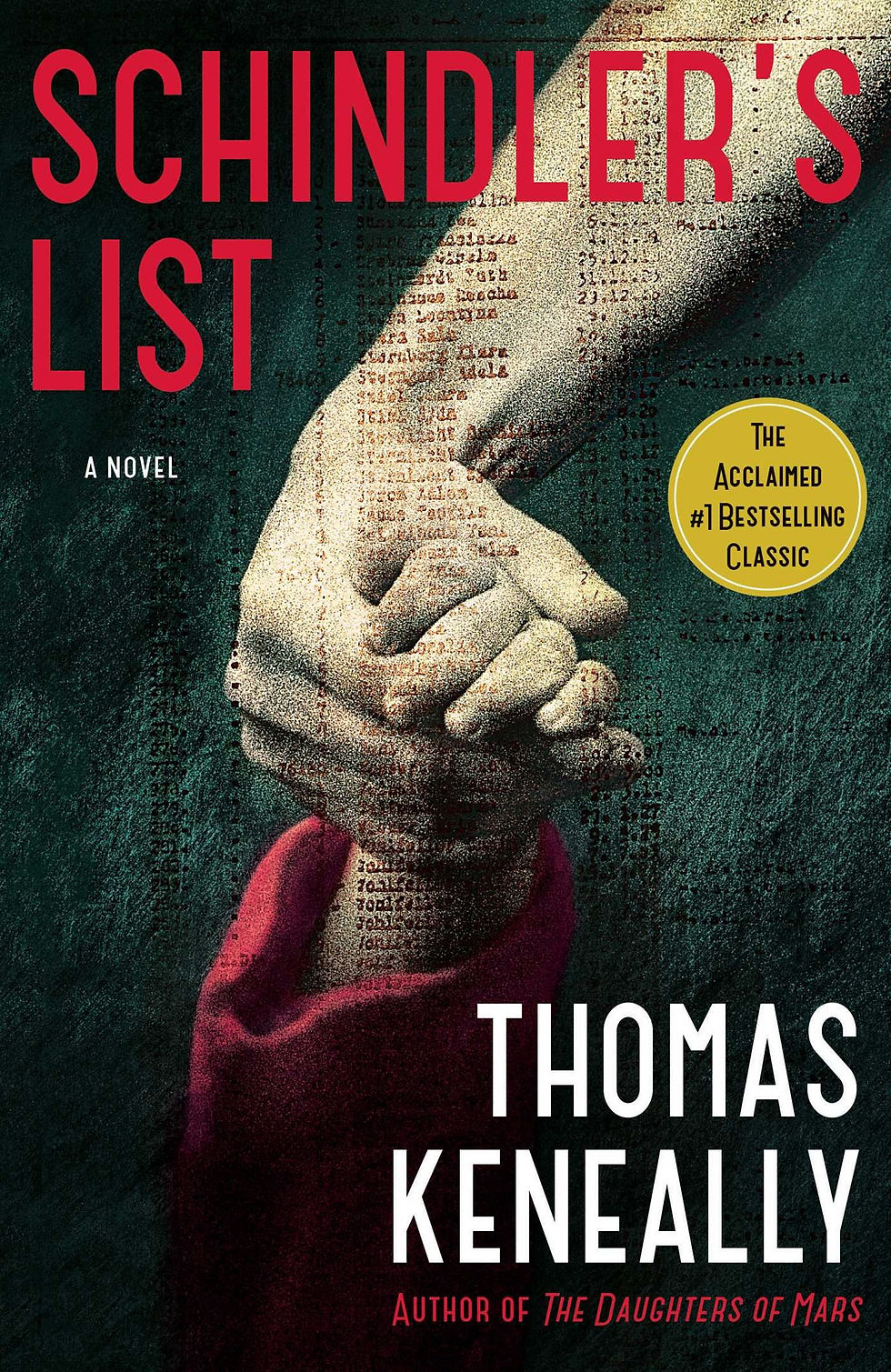
To begin with, I confess that I haven't seen the film adaptation yet. I know about the movie since its release, but the desire to read the book first, was too great. So now, after reading, with a quiet soul (I lie, after the book calmly just can not get) can enjoy (or horrified even more) sensational Hollywood masterpiece of modern cinematography.
Thomas Michael Keneally, AO (born 7 October 1935) is an Australian novelist, playwright and author of non-fiction. He is best known for writing Schindler's Ark, the Booker Prize-winning novel of 1982, which was inspired by the efforts of Poldek Pfefferberg, a Holocaust survivor. The book would later be adapted to Steven Spielberg's Schindler's List (1993), which won the Academy Award for Best Picture.
Thomas Kenilly's book was very hard for me, I read it for almost two weeks, constantly putting it off for certain reasons, not being able to read fifty pages in one sitting. At the beginning the text seemed a bit dry and unemotional and knowing beforehand what the book would be about, I missed the fiction in it, but having settled down and going deeper into the narrative problem, I stopped paying attention to the lack, which was initially so obvious.
The story of Oskar Schindler is the story of a man with a huge heart, with an incredible sense of responsibility and duty, not afraid to go against the system, risking his life to save more than a thousand Jews doomed to death. Being far from being a saint, Oscar was considered to be rather amorous man, was not against sexual pleasures on the side, visited several mistresses at once in the presence of a living wife. In addition, he liked not just to drink, but to get drunk as hell in friendly company. Having at his disposal a factory for the production of enamelware, forgetting about the income, violating the laws of the Reich, began to save many human lives belonging to the persecuted nation.
I thought the book was written in more documentary language and because of it I constantly saw in front of my eyes black and white pictures of terrible horror of that time, which I mentally witnessed. Weak nerves better not read!!! Skinny, haggard children in shreds of dirty out-of-size clothes, who had forgotten what fun and carefree laughter was, looking over the checkered fence with huge sunken eyes. Men and women with sloppily shorn hair, moving slowly and falling to the ground helplessly, their mouths gaping with holes from gold crowns torn out by the Nazis, their eyes pleading for mercy and their dry and cracked lips whispering the prayer "Shma Yisrael" to their Hebrew god. In one of the city's courtyards, the ground is drenched in blood, and mountains of frozen corpses are sprawled out in shameless poses, escape from the Nazi meat grinder almost impossible. A young SS man snatches a baby from its sobbing mother and smashes its head against the wall, the sound of the fragile skull cracking makes me lose my hearing for a while, and when I lower my eyes I see the blood-splattered boots of a non-human...
Throughout the entire story, I couldn't help but wonder how a NORMAL person could be influenced to turn into a ruthless beast that brutally murders weak and defenseless people. How can you kill a child? What kind of monster does one have to be?
The author explains that the SS soldiers were persuaded to put aside their pity for the Jews doomed to death, so that they would not think of showing mercy, because in this case showing mercy was considered treason. But was it really necessary to be so cruel? Were only people with sadistic tendencies, explosive temper and dangerous intemperance hired for such service? Were they recruited by casting?
Also in the text there was this definition of the Jewish people:
"...even a Jewish child is a time bomb planted under your culture; a Jewish woman is biologically predisposed to treason, and a Jewish man is a far more dangerous enemy - than one would expect from any Russian!"
The Nazis and old friends considered Schindler a victim of the Jewish virus, regretted that he had suffered from it, and condemned other decent people who suddenly contracted the virus. They considered the disease extremely dangerous, because some part of the brain fell under the power of this half-bacterium, and contagious.
And I think it is more dangerous to be infected with the Nazi virus. It is terrible to hate people of a different nationality, a different faith, or an appearance not like yours. Every nation has negative and positive heroes, it's more important to be able to identify them, not to lump them all together. The German Oskar was disgusted by the Nazis and I was disgusted by what they did to people.
The book is complex, scary, in some places very scary. Read it for sure, to know, but recommend it to anyone, I think, I will not.
Comments